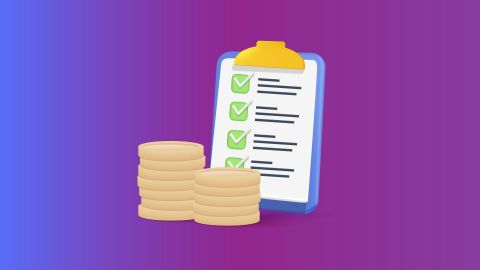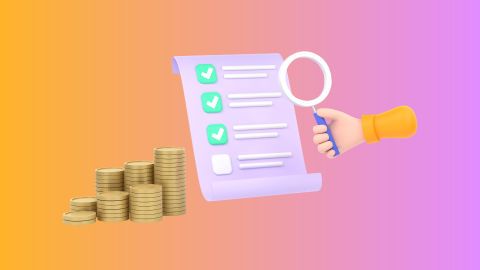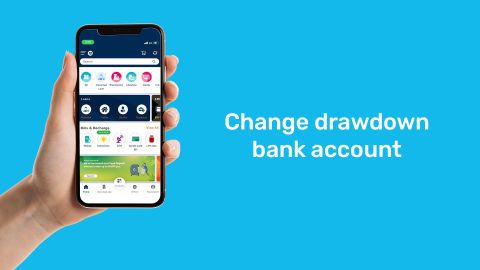मुद्रा लोन क्या है?
प्रधानमंत्री मुद्रा योजना (PMMY) भारत सरकार द्वारा 8 अप्रैल 2015 को शुरू की गई एक पहल है, जो नॉन-कॉर्पोरेट और नॉन-एग्रीकल्चर वाले छोटे और सूक्ष्म उद्यमों को ₹10 लाख तक की फाइनेंशियल सहायता प्रदान करती है. ये लोन, जिन्हें मुद्रा लोन कहा जाता है, कमर्शियल बैंक, रीजनल रूरल बैंक (RRB), स्मॉल फाइनेंस बैंक, माइक्रो फाइनेंस इंस्टीट्यूशन (MFI) और नॉन-बैंकिंग फाइनेंशियल कंपनियों (NBFC) सहित फाइनेंशियल संस्थानों के विशाल नेटवर्क के माध्यम से उपलब्ध कराए जाते हैं. PM मुद्रा लोन के लिए अप्लाई करने वाले आवेदक सीधे इनमें से किसी भी लोनदाता के पास जा सकते हैं या www.udyamimitra.in पर आधिकारिक पोर्टल के माध्यम से ऑनलाइन अप्लाई कर सकते हैं.
विकास के विभिन्न चरणों में बिज़नेस की ज़रूरतों को पूरा करने के लिए, मुद्रा PMMY - 'शिशु', 'किशोर' और 'तरुण' के तहत तीन मुद्रा लोन कैटेगरी विकल्प प्रदान करता है. प्रत्येक कैटेगरी बिज़नेस की वृद्धि और संबंधित फंडिंग आवश्यकताओं के एक विशिष्ट स्तर को दर्शाती है, जो उद्यम की प्रगति और भविष्य की क्षमता का आकलन करने के लिए एक बेंचमार्क के रूप में कार्य करती है.
डिस्क्लेमर: हमने इस समय इस प्रोडक्ट (मुद्रा लोन) को बंद कर दिया है. हमारे द्वारा प्रदान की गई वर्तमान फाइनेंशियल सेवाओं के बारे में अधिक जानने के लिए कृपया हमसे +91-8698010101 पर संपर्क करें.
प्रधानमंत्री मुद्रा लोन की विशेषताएं
लोन राशि |
शिशु के तहत ₹50,000 तक |
प्रोसेसिंग फीस |
शिशु और किशोर लोन के लिए शून्य, तरुण लोन के लिए लोन राशि का 0.5% |
योग्यता मानदंड |
नई और मौजूदा इकाइयां |
पुनर्भुगतान अवधि |
मुद्रा के लिए 7 वर्ष तक |
अधिक व्यापक फाइनेंसिंग समाधान खोजने वाले बिज़नेस मालिक MSME लोन पर भी विचार कर सकते हैं, जो छोटे और मध्यम उद्यम गतिविधियों की व्यापक रेंज को सपोर्ट करते हैं.
मुद्रा लोन के प्रकार
सरकार ने माइक्रो-यूनिट या उद्यमी की फंडिंग आवश्यकताओं के आधार पर मुद्रा लोन को 3 प्रकारों में विभाजित किया है. लोन को इस प्रकार वर्गीकृत किया गया है:
1. शिशु मुद्रा लोन
मुद्रा लोन स्कीम के तहत, शिशु मुद्रा लोन उन उद्यमियों को ₹50,000 तक प्रदान करता है जो बिज़नेस के प्रारंभिक चरणों में हैं या कोई बिज़नेस शुरू करना चाहते हैं. उधारकर्ताओं को मशीनरी सप्लायर का विवरण भी प्रदान करना होगा.
2. किशोर मुद्रा लोन
मुद्रा लोन स्कीम के तहत, किशोर मुद्रा लोन उन लोगों को ₹5 लाख तक का लोन प्रदान करता है जो अपने संचालन को बढ़ाने के लिए अतिरिक्त फंड चाहते हैं. उधारकर्ताओं को बिज़नेस की आर्थिक और तकनीकी व्यवहार्यता वाली रिपोर्ट भी प्रदान करनी होगी.
3. तरुण मुद्रा लोन
मुद्रा लोन स्कीम के तहत, अगर बिज़नेस मालिक कुछ योग्यता की शर्तों को पूरा करता है, तो तरुण मुद्रा लोन ₹10 लाख तक की स्वीकृति देता है.
हालांकि यह स्कीम फाइनेंसिंग प्रदान करती है, लेकिन बजाज फाइनेंस का अनसिक्योर्ड बिज़नेस लोन आपको उच्च स्वीकृति का एक्सेस दे सकता है. आसान शर्तों को पूरा करने और न्यूनतम डॉक्यूमेंटेशन प्रदान करने पर, आप 48 घंटों के अंदर ₹ 80 लाख* तक के लिए अप्रूवल प्राप्त कर सकते हैं.
*बीमा प्रीमियम, VAS शुल्क, डॉक्यूमेंटेशन शुल्क, फ्लेक्सी फीस और प्रोसेसिंग फीस सहित.
4. तरुण प्लस मुद्रा लोन
मुद्रा लोन स्कीम के तहत, तरुण प्लस कैटेगरी उन उद्यमियों को ₹10 लाख से ₹20 लाख तक का लोन प्रदान करती है जिन्होंने अपने पिछले तरुण कैटेगरी के लोन का सफलतापूर्वक पुनर्भुगतान कर दिया है. यह कैटेगरी केंद्रीय बजट 2024-25 के हिस्से के रूप में शुरू की गई थी.
लेकिन स्कीम महत्वपूर्ण फाइनेंशियल सहायता प्रदान करती है, लेकिन बजाज फाइनेंस से अनसिक्योर्ड बिज़नेस लोन का विकल्प चुनने से आपको उच्च लोन राशि का एक्सेस मिल सकता है. आसान योग्यता की शर्तों को पूरा करके और न्यूनतम डॉक्यूमेंटेशन सबमिट करके, आप 48 घंटों के भीतर ₹80 लाख* तक का अप्रूवल प्राप्त कर सकते हैं.
बीमा प्रीमियम, वैल्यू-एडेड सेवा (VAS) शुल्क, डॉक्यूमेंटेशन शुल्क, फ्लेक्सी फीस और प्रोसेसिंग फीस सहित.
मुद्रा लोन के उद्देश्य
इन लोन का उपयोग विभिन्न उद्देश्यों के लिए किया जा सकता है, जिनमें शामिल हैं:
- कार्यशील पूंजी की ज़रूरतों के लिए फाइनेंसिंग.
- उपकरण और मशीनरी खरीदना.
- ट्रांसपोर्टेशन वाहन प्राप्त करना.
- फूड प्रोसेसिंग, टेक्सटाइल और ट्रेडिंग जैसे क्षेत्रों में बिज़नेस की सहायता करना.
- मधुमक्खी पालन और मुर्गीपालन सहित संबंधित कृषि गतिविधियों के लिए फंडिंग.
मुद्रा लोन के लाभ
मुद्रा लोन का उद्देश्य समाज के वंचित वर्गों में उद्यमिता और स्व-रोज़गार को बढ़ावा देना है. मुद्रा लोन के कुछ लाभ इस प्रकार हैं:
- कोई कोलैटरल आवश्यक नहीं: मुद्रा लोन प्राप्त करने के लिए आपको कोई सिक्योरिटी प्रदान करने या अपनी पर्सनल या बिज़नेस प्रॉपर्टी को गिरवी रखने की आवश्यकता नहीं है.
- आसानी से उपलब्ध: ये लोन लगभग हर सेक्टर में पूरे भारत में माइक्रो बिज़नेस शुरू करने वाले उद्यमियों के लिए आसानी से उपलब्ध हैं.
- डिफॉल्ट के मामले में सहायता: अगर आप अप्रत्याशित समस्याओं या प्राकृतिक आपदाओं के कारण लोन का पुनर्भुगतान नहीं कर पा रहे हैं, तो सरकार पुनर्भुगतान की जिम्मेदारी ले सकती है.
- फंड का तुरंत एक्सेस: मुद्रा लोन छोटे बिज़नेस के लिए तेज़ और आसान फंडिंग प्रदान करते हैं. मुद्रा लोन लिमिट ₹10 लाख तक होती है, जिसका लाभ बिना किसी देरी के लिया जा सकता है.
- महिलाओं के लिए सहायता: महिला उद्यमियों को मुद्रा स्कीम के तहत विशेष लाभ और कम ब्याज दरें मिल सकती हैं.
- ग्रामीण सहायता: मुद्रा लोन ग्रामीण और शहरी दोनों क्षेत्रों में उपलब्ध हैं, क्योंकि ग्रामीण बिज़नेस बेहतर एक्सेस के कारण अक्सर अधिक लाभ उठाते हैं.
- सुविधाजनक पुनर्भुगतान विकल्प: आप अपने बिज़नेस के अनुसार लोन का पुनर्भुगतान जल्दी कर सकते हैं या 7 वर्ष तक की पुनर्भुगतान अवधि बढ़ा सकते हैं.
- विभिन्न क्रेडिट विकल्प: स्कीम आपके बिज़नेस को बढ़ाने में मदद करने के लिए कैश क्रेडिट और इक्विपमेंट लोन जैसे विभिन्न प्रकार की फाइनेंशियल सहायता प्रदान करती है.
- मुद्रा कार्ड: आप मुद्रा कार्ड के लिए भी अप्लाई कर सकते हैं, जो ज़रूरत पड़ने पर पैसे और ओवरड्राफ्ट सुविधाओं तक आसान एक्सेस प्रदान करता है.
मुद्रा लोन के तहत कवर की जाने वाली योग्य गतिविधियां
ट्रांसपोर्ट वाहन
माल और यात्रियों के परिवहन के लिए इस्तेमाल किए जाने वाले परिवहन वाहनों की खरीद के लिए लोन, जैसे ऑटो रिक्शा, छोटे माल परिवहन वाहन, 3-व्हीलर, ई-रिक्शा, टैक्सी आदि.
इसमें विशेष रूप से कमर्शियल उद्देश्यों के लिए इस्तेमाल किए जाने वाले ट्रैक्टर, पावर टिलर, ट्रैक्टर ट्रॉली और टू-व्हीलर भी शामिल हैं.
- समुदाय, सामाजिक और व्यक्तिगत सेवा गतिविधियां
सैलून, जिम, बुटीक, डीटीपी और फोटोकॉपी सेवाओं, टेलरिंग दुकानों, ड्राई क्लीनिंग, दवाओं की दुकानों, ब्यूटी पार्लर, साइकिल और मोटरसाइकिल रिपेयर शॉप, कूरियर सेवाओं आदि जैसे बिज़नेस के लिए लोन.
- खाद्य उत्पाद क्षेत्र
पापड़, बिस्किट, ब्रेड, बन्स, जाम, जेली, आइस क्रीम, ग्रामीण स्तर पर कृषि उत्पादन संरक्षण, आचार निर्माण, कोल्ड स्टोरेज, स्मॉल फूड स्टॉल, डे-टू-डे केटरिंग या कैंटीन सेवाएं, कोल्ड चेन वाहन, आइस मेकिंग यूनिट, स्वीट शॉप आदि जैसे वस्तुओं के उत्पादन में शामिल बिज़नेस के लिए लोन.
- टेक्सटाइल प्रोडक्ट सेक्टर/ऐक्टिविटी
हैंडलूम वेविंग, चिकन वर्क, पारंपरिक एम्ब्रॉयडरी, कंप्यूटराइज्ड एम्ब्रॉयडरी, पारंपरिक डाइनिंग और प्रिंटिंग, ज़री और ज़ार्डोजी वर्क, पावरलूम वेविंग, खादी प्रोडक्शन, अपैरल डिजाइन, निटिंग, कॉटन गिनिंग, सिलाई और अन्य नॉन-गैरमेंट टेक्सटाइल प्रोडक्ट जैसे वाहन एक्सेसरीज़, बैग, फर्निशिंग एक्सेसरीज़ आदि के लिए लोन.
- व्यापारियों और दुकानदारों के लिए बिज़नेस लोन
गैर-कृषि आय-उत्पादन गतिविधियों सहित अपनी खुद की दुकानों या व्यापार और सेवा उद्यमों में शामिल व्यक्तियों के लिए लोन.
- सूक्ष्म इकाइयों के लिए इक्विपमेंट फाइनेंस स्कीम
अपने बिज़नेस के लिए आवश्यक मशीनरी या उपकरण खरीदकर सूक्ष्म उद्यम स्थापित करने वाले व्यक्तियों के लिए लोन.
- कृषि से संबंधित गतिविधियां
मछली पालन, मुर्गीपालन, पशुधन पालन, मधुमक्खी पालन, कृषि-प्रक्रिया, डेयरी, मत्स्य, ग्रेडिंग, सॉर्टिंग, एग्री-क्लिनिक्स, कृषि व्यवसाय केंद्र और अन्य सेवाओं जैसी गतिविधियों में शामिल बिज़नेस के लिए लोन, जो आजीविका को बढ़ावा देते हैं या आय उत्पन्न करते हैं. लेकिन, इस कैटेगरी के तहत फसल लोन, सिंचाई, कैनाल वर्क और कुएं जैसी भूमि सुधार गतिविधियां शामिल नहीं हैं.
PM मुद्रा योजना के योग्य उधारकर्ता
योग्य उधारकर्ताओं के प्रकार यहां दिए गए हैं:
- व्यक्तियों
- एकल स्वामित्व
- प्राइवेट लिमिटेड कंपनी
- पार्टनरशिप फर्म
- पब्लिक लिमिटेड कंपनी
- किसी अन्य कानूनी रूपों की संस्थाएं
- मुद्रा लोन की आयु सीमा: 18 से 65 वर्ष
PM मुद्रा लोन के लिए योग्यता मानदंड
प्रधानमंत्री मुद्रा योजना (PMMY) के तहत मुद्रा लोन का उद्देश्य सूक्ष्म उद्यमों और लघु व्यवसायों को फाइनेंशियल सहायता प्रदान करना है. योग्यता मानदंड यहां दिए गए हैं:
- आय में शामिल व्यक्ति या संस्थाएं - निर्माण, ट्रेडिंग या सेवाओं जैसी गतिविधियों को जनरेट करने के लिए योग्य हैं.
- लोन एप्लीकेंट 18 से 65 वर्ष की आयु के भारतीय नागरिक होने चाहिए.
- बिज़नेस कृषि और संबंधित गतिविधियों को छोड़कर गैर-कृषि आय-उत्पादन कैटेगरी के तहत आने चाहिए.
- उधारकर्ताओं के पास एक व्यवहार्य बिज़नेस प्लान होना चाहिए और लोन का पुनर्भुगतान करने की क्षमता प्रदर्शित करना चाहिए.
- उधारकर्ता की बिज़नेस आवश्यकताओं और पुनर्भुगतान क्षमता के आधार पर लोन राशि अलग-अलग होती है.
मुद्रा लोन के लिए आवश्यक डॉक्यूमेंट
मुद्रा लोन के लिए अप्लाई करते समय, एप्लीकेंट को अपने लोन एप्लीकेशन को सपोर्ट करने के लिए विशिष्ट डॉक्यूमेंट प्रदान करने होंगे. यहां मुद्रा लोन के लिए आवश्यक डॉक्यूमेंट दिए गए हैं:
- आइडेंटिटी प्रूफ जैसे आधार कार्ड, पासपोर्ट, वोटर ID या ड्राइविंग लाइसेंस.
- एड्रेस प्रूफ, जिसमें यूटिलिटी बिल, राशन कार्ड या रेंट एग्रीमेंट शामिल हैं.
- लोन के उद्देश्य और अपेक्षित परिणामों की रूपरेखा देने वाला बिज़नेस प्लान.
- बिज़नेस ओनरशिप या रजिस्ट्रेशन डॉक्यूमेंट का प्रमाण, जैसे GST रजिस्ट्रेशन या बिज़नेस लाइसेंस.
- एप्लीकेंट की पुनर्भुगतान क्षमता प्रदर्शित करने वाले बैंक स्टेटमेंट या फाइनेंशियल डॉक्यूमेंट.
- लेंडिंग संस्थान द्वारा निर्दिष्ट कोई अन्य डॉक्यूमेंट, जैसे इनकम टैक्स रिटर्न या कोलैटरल डॉक्यूमेंट.
PMMY के तहत वाहन लोन के लिए आवश्यक डॉक्यूमेंट
प्रधानमंत्री मुद्रा योजना (PMMY) के तहत वाहन लोन के लिए आवश्यक डॉक्यूमेंट में निम्नलिखित शामिल हैं:
- मुद्रा लोन एप्लीकेशन फॉर्म: आवेदक द्वारा विधिवत भरा और हस्ताक्षरित.
- वाहन लोन एप्लीकेशन: वाहन लोन अनुरोध के लिए विशिष्ट फॉर्म पूरा करें.
- फोटो: आवेदक की हाल ही की दो पासपोर्ट साइज़ फोटो.
- पहचान प्रमाण: कोई भी आधार कार्ड, पासपोर्ट, वोटर Id या ड्राइविंग लाइसेंस.
- पते का प्रमाण: आधार कार्ड, पासपोर्ट, हाल ही के बैंक स्टेटमेंट, बिजली का बिल या फोन बिल जैसे मान्य डॉक्यूमेंट.
- आय का प्रमाण: लोनदाता की आवश्यकताओं के अनुसार आवेदक की आय के विवरण को सपोर्ट करने वाले डॉक्यूमेंट.
- बैंक स्टेटमेंट: पिछले छह महीनों के आवेदक के बैंक अकाउंट का स्टेटमेंट.
भारतीय अर्थव्यवस्था में मुद्रा लोन का महत्व
सूक्ष्म और लघु बिज़नेस यूनिट भारत के आय उत्पन्न करने वाले सेक्टर का एक प्रमुख हिस्सा हैं. ये छोटी यूनिट शहरों, गांव और यहां तक कि आदिवासी क्षेत्रों में लाखों लोगों को रोज़गार प्रदान करती हैं. लेकिन, इनमें से कई लोग ऐसे अनौपचारिक पैसे देने वालों पर निर्भर करते हैं जो बहुत अधिक ब्याज दरें लेते हैं, जिससे अक्सर दुरुपयोग होता है. अगर इन बिज़नेस को उचित और नियमित फंडिंग की सुविधा मिलती है, तो वे अर्थव्यवस्था में और अधिक वृद्धि कर सकते हैं और योगदान दे सकते हैं.
इस अंतर को कम करने के लिए, केंद्र सरकार ने PM मुद्रा लोन स्कीम नामक एक आसान और सुविधाजनक लोन स्कीम शुरू की. यह स्कीम भारतीय अर्थव्यवस्था और व्यक्तियों या पार्टनरशिप बिज़नेस, दोनों को स्थिर आय अर्जित करने और अपने परिवार को सपोर्ट करने में मदद करके महत्वपूर्ण भूमिका निभाती है. मुद्रा स्कीम के तहत, लोग नया बिज़नेस शुरू कर सकते हैं या अपने मौजूदा बिज़नेस का विस्तार कर सकते हैं.
स्कीम भारत के ग्रामीण और शहरी क्षेत्रों में योग्य छोटे बिज़नेस के लिए शॉर्ट-टर्म और लॉन्ग-टर्म फाइनेंस दोनों तक पहुंच में सुधार करती है. यह आर्थिक पौड़े के निचले सिरे पर बिज़नेस के लिए अधिक आय के अवसर भी पैदा करता है. इसके परिणामस्वरूप, यह प्रति व्यक्ति आय बढ़ाने और रोज़गार के स्तर को बढ़ाने में मदद करता है.
इस स्कीम का प्रबंधन सिडबी (स्मॉल इंडस्ट्रीज़ डेवलपमेंट Bank of India) द्वारा किया जाता है, जो उद्यमियों को वित्तीय शिक्षा प्रदान करने के लिए भी काम करता है, जिससे उन्हें आर्थिक और सामाजिक दोनों तरह के विकास में मदद मिलती है.
मुद्रा योजना स्कीम के तहत कवर किए जाने वाले सेक्टर
- ट्रांसपोर्ट: ऑटो-रिक्शा, थ्री-व्हीलर, छोटे डिलीवरी वैन, टैक्सी और इसी तरह के वाहन खरीदने के लिए.
- पर्सनल सेवाएं: इसमें पुरुषों के सैलून, ब्यूटी पार्लर, जिम, बुटीक, ड्राय क्लीनर, मेडिकल स्टोर, टेलर शॉप और इसी तरह के बिज़नेस शामिल हैं.
- फूड प्रोडक्ट: छोटे स्तर के प्रोडक्शन और पैकेजिंग यूनिट के लिए जैसे कपड़े, जैम, मिठाई, आइस क्रीम या चल रही कैंटीन बनाना.
- कृषि और संबंधित गतिविधियां: इसमें मछली की खेती, मुर्गीपालन, डेयरी, कृषि-प्रोसेसिंग, मधूमੱखी पालन, पशुपालन और इसी तरह की सेवाएं शामिल हैं.
- टेक्सटाइल: हैंडलूम, खादी वर्क, पारंपरिक एम्ब्रॉयडरी और वाहन एक्सेसरीज़ बनाने में शामिल बिज़नेस के लिए.
- बिज़नेस गतिविधियां: ट्रेडर्स, दुकानदारों, सेवा प्रदाताओं और अन्य छोटे गैर-कृषि आय-उत्पादन गतिविधियों के लिए उपयुक्त.
फाइनेंशियल सहायता का प्रकार
बिज़नेस की ज़रूरतों के लिए फाइनेंशियल सहायता प्राप्त करते समय, विशिष्ट आवश्यकताओं को पूरा करने के लिए विभिन्न प्रकार के लोन और क्रेडिट सुविधाएं उपलब्ध हैं:
- टर्म लोन
- वर्किंग कैपिटल लोन
- ओवरड्राफ्ट लिमिट
- कंपोजिट लोन
मुद्रा लोन के लिए ऑनलाइन अप्लाई करने के चरण
मुद्रा लोन के लिए ऑनलाइन अप्लाई करने के लिए, इन चरणों का पालन करें:
- मुद्रा लोन पोर्टल या भाग लेने वाले बैंक की वेबसाइट की आधिकारिक वेबसाइट पर जाएं.
- नए यूज़र के रूप में रजिस्टर करें और पोर्टल पर अकाउंट बनाएं.
- अपने बिज़नेस, आवश्यक लोन राशि और पुनर्भुगतान क्षमता के बारे में सटीक विवरण के साथ लोन एप्लीकेशन फॉर्म पूरा करें.
- पहचान प्रमाण, एड्रेस प्रूफ, बिज़नेस प्लान और फाइनेंशियल स्टेटमेंट सहित आवश्यक डॉक्यूमेंट अपलोड करें.
- एप्लीकेशन को सावधानीपूर्वक रिव्यू करें और इसे ऑनलाइन सबमिट करें.
- ऑनलाइन पोर्टल के माध्यम से अपने एप्लीकेशन का स्टेटस ट्रैक करें या अपडेट के लिए बैंक से संपर्क करें.
- अप्रूव होने के बाद, लोन राशि डिस्बर्स करने के लिए बैंक द्वारा आवश्यक कोई अतिरिक्त डॉक्यूमेंटेशन और औपचारिकताएं पूरी करें.
मुद्रा लोन के लिए ऑफलाइन अप्लाई करने के चरण
मुद्रा लोन के लिए ऑफलाइन अप्लाई करने के लिए, इन चरणों का पालन करें:
- मुद्रा लोन प्रदान करने वाली प्रतिभागी बैंक शाखा या फाइनेंशियल संस्थान पर जाएं.
- बैंक के लोन ऑफिसर से लोन एप्लीकेशन फॉर्म का अनुरोध करें.
- अपने बिज़नेस, आवश्यक लोन राशि और पुनर्भुगतान क्षमता के बारे में सटीक विवरण के साथ एप्लीकेशन फॉर्म भरें.
- पहचान प्रमाण, एड्रेस प्रूफ, बिज़नेस प्लान और फाइनेंशियल स्टेटमेंट सहित आवश्यक डॉक्यूमेंट अटैच करें.
- डॉक्यूमेंट के साथ पूरा किया गया एप्लीकेशन फॉर्म बैंक अधिकारी को सबमिट करें.
- बैंक आपके एप्लीकेशन को रिव्यू करेगा और डॉक्यूमेंट वेरिफाई करेगा.
- अप्रूव होने के बाद, लोन राशि डिस्बर्स करने के लिए बैंक द्वारा आवश्यक कोई भी अतिरिक्त औपचारिकताएं पूरी करें.
आपकी सभी फाइनेंशियल ज़रूरतों और लक्ष्यों के लिए बजाज फिनसर्व ऐप
भारत में 50 मिलियन से भी ज़्यादा ग्राहकों की भरोसेमंद, बजाज फिनसर्व ऐप आपकी सभी फाइनेंशियल ज़रूरतों और लक्ष्यों के लिए एकमात्र सॉल्यूशन है.
आप इसके लिए बजाज फिनसर्व ऐप का उपयोग कर सकते हैं:
- ऑनलाइन लोन्स के लिए अप्लाई करें, जैसे इंस्टेंट पर्सनल लोन, होम लोन, बिज़नेस लोन, गोल्ड लोन आदि.
- ऐप पर फिक्स्ड डिपॉज़िट और म्यूचुअल फंड में निवेश करें.
- स्वास्थ्य, मोटर और पॉकेट इंश्योरेंस के लिए विभिन्न बीमा प्रदाताओं के कई विकल्पों में से चुनें.
- BBPS प्लेटफॉर्म का उपयोग करके अपने बिल और रीचार्ज का भुगतान करें और मैनेज करें. तेज़ और आसानी से पैसे ट्रांसफर और ट्रांज़ैक्शन करने के लिए Bajaj Pay और बजाज वॉलेट का उपयोग करें.
- इंस्टा EMI कार्ड के लिए अप्लाई करें और ऐप पर प्री-क्वालिफाइड लिमिट प्राप्त करें. ऐप पर 1 मिलियन से अधिक प्रोडक्ट देखें जिन्हें आसान EMI पर पार्टनर स्टोर से खरीदा जा सकता है.
- 100+ से अधिक ब्रांड पार्टनर से खरीदारी करें जो प्रोडक्ट और सेवाओं की विविध रेंज प्रदान करते हैं.
- EMI कैलकुलेटर, SIP कैलकुलेटर जैसे विशेष टूल्स का उपयोग करें
- अपना क्रेडिट स्कोर चेक करें, लोन स्टेटमेंट डाउनलोड करें और तुरंत ग्राहक सपोर्ट प्राप्त करें—सभी कुछ ऐप में.
आज ही बजाज फिनसर्व ऐप डाउनलोड करें और एक ऐप पर अपने फाइनेंस को मैनेज करने की सुविधा का अनुभव लें.
सामान्य प्रश्न
मुद्रा उधारकर्ताओं के चरण और आवश्यकताओं के आधार पर तीन कैटेगरी के लोन प्रदान करती है: शिशु (₹ 50,000 तक), किशोर (₹. 50,000 से ₹ 5 लाख), और तरुण (₹ 5 लाख से ₹ 10 लाख). लोन का उपयोग कार्यशील पूंजी, मशीनरी, उपकरण आदि जैसे विभिन्न उद्देश्यों के लिए किया जा सकता है.
मुद्रा लोन पर लागू ब्याज दर अलग-अलग बैंक में अलग-अलग होती है और जोखिम कारक और लोन राशि पर निर्भर करती है. ब्याज दरें प्रति वर्ष 7.30% से शुरू होती हैं और प्रति वर्ष 18% तक जा सकती हैं.
मुद्रा लोन के लिए उधारकर्ताओं से किसी कोलैटरल या गारंटर की आवश्यकता नहीं होती है. डिफॉल्ट के जोखिम को कम करने के लिए, लोनदाता को क्रेडिट गारंटी प्रदान करने के लिए माइक्रो यूनिट के लिए क्रेडिट गारंटी फंड बनाया गया है.
उधारकर्ता की बिज़नेस आवश्यकताओं और पुनर्भुगतान क्षमता के आधार पर मुद्रा लोन की लिमिट 20 लाख तक है. लोन राशि को तीन स्कीम में वर्गीकृत किया जाता है: शिशु (50,000 तक), किशोर (5 लाख तक), और तरुण (20 लाख तक).
आय पैदा करने वाली गतिविधियों जैसे निर्माण, ट्रेडिंग या सेवाओं में लगे व्यक्ति, सूक्ष्म उद्यम और लघु व्यवसाय मुद्रा लोन के लिए योग्य हैं. व्यवहार्य बिज़नेस प्लान के साथ 18 से 65 वर्ष की आयु वाले भारतीय नागरिक और पुनर्भुगतान की क्षमता अप्लाई करने के लिए योग्य हैं.
मुद्रा लोन का पुनर्भुगतान करने के लिए, उधारकर्ता आमतौर पर बैंक या फाइनेंशियल संस्थान के साथ सहमत पुनर्भुगतान शिड्यूल के अनुसार नियमित किश्तों का भुगतान करते हैं. कुछ बैंक ऑनलाइन लोन का पुनर्भुगतान करने के विकल्प भी प्रदान करते हैं.
अगर मुद्रा लोन का भुगतान नहीं किया जाता है, तो यह आपके क्रेडिट स्कोर को प्रभावित कर सकता है, और आपको कानूनी परिणामों का सामना करना पड़ सकता है. लोनदाता लोन को रिकवर करने के लिए भी कार्रवाई कर सकता है, जैसे कोलैटरल बेचना, अगर कोई हो.
मुद्रा लोन में खुद सब्सिडी नहीं है. लेकिन, कुछ शर्तों के अधीन, कुछ सरकारी योजनाओं में ब्याज सबवेंशन या क्रेडिट गारंटी की विशेषताएं हो सकती हैं.
मुद्रा लोन को तीन मुख्य प्रकारों में वर्गीकृत किया जाता है: शिशु, किशोर और तरुण. शिशु कैटेगरी को ₹ 50,000 तक के लोन चाहने वाले नए बिज़नेस के लिए डिज़ाइन किया गया है. किशोर कैटेगरी ₹ 50, 001 से ₹ 5 लाख के बीच फंडिंग की तलाश करने वाले स्थापित बिज़नेस को पूरा करती है. अंत में, तरुण कैटेगरी बड़े उद्यमों के लिए है जिसके लिए ₹ 5 लाख से ₹ 10 लाख तक के लोन की आवश्यकता होती है. प्रत्येक प्रकार को विकास के विभिन्न चरणों में बिज़नेस की विशिष्ट आवश्यकताओं को पूरा करने के लिए तैयार किया गया है, जिससे उद्यमियों के लिए अपने संचालन शुरू करने या विस्तार करने के लिए आवश्यक फंड एक्सेस करना आसान हो जाता है.
मुद्रा लोन की पुनर्भुगतान अवधि आमतौर पर 3 से 5 वर्ष तक होती है, हालांकि यह लेंडर की पॉलिसी और विशिष्ट लोन कैटेगरी के आधार पर अलग-अलग हो सकती है. उधारकर्ताओं को आमतौर पर 6 महीनों से 1 वर्ष की ग्रेस अवधि के बाद लोन का पुनर्भुगतान शुरू करना होता है, जिससे उन्हें अपने बिज़नेस ऑपरेशन को स्थापित करने का समय मिलता है. पुनर्भुगतान शिड्यूल को सुविधाजनक बनाने के लिए डिज़ाइन किया गया है, जो छोटे बिज़नेस के कैश फ्लो को समायोजित करता है, जो यह सुनिश्चित करने में मदद कर सकता है कि उद्यमी बिना किसी परेशानी के अपने फाइनेंशियल दायित्वों को पूरा कर सकें.











